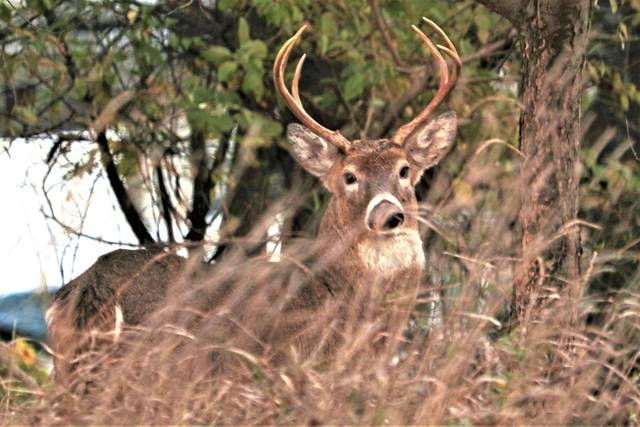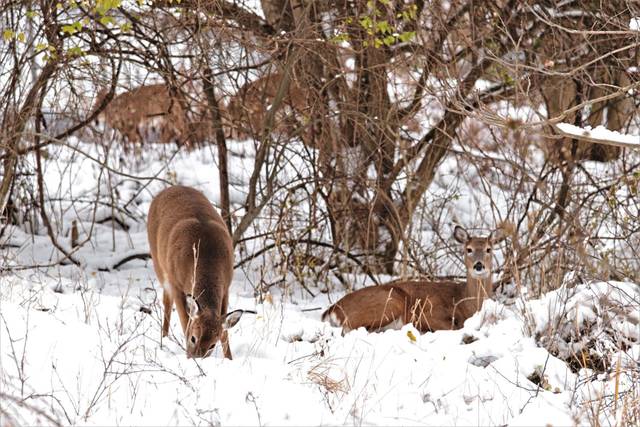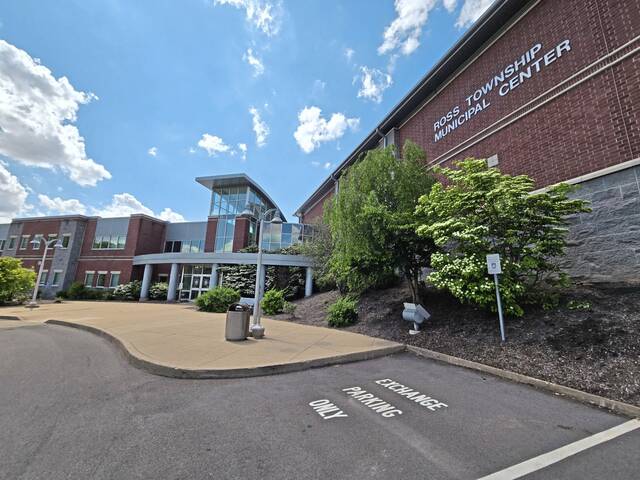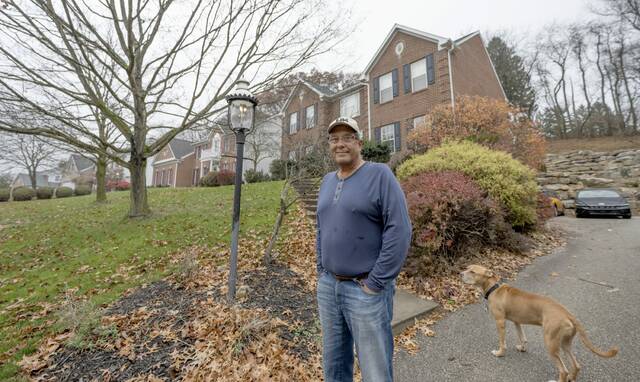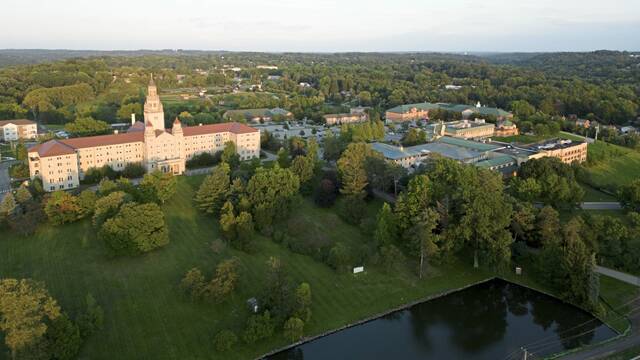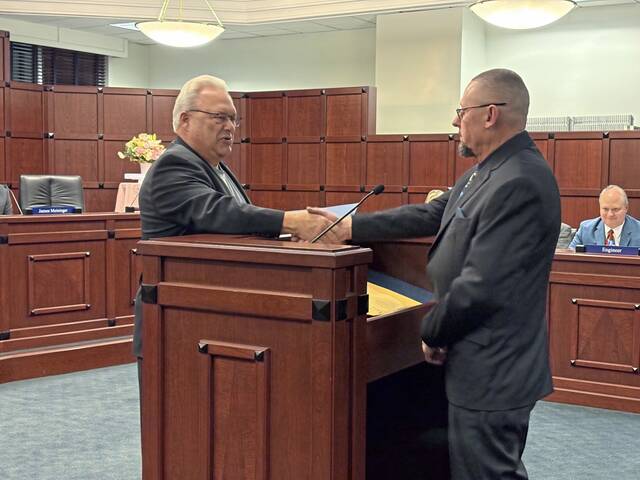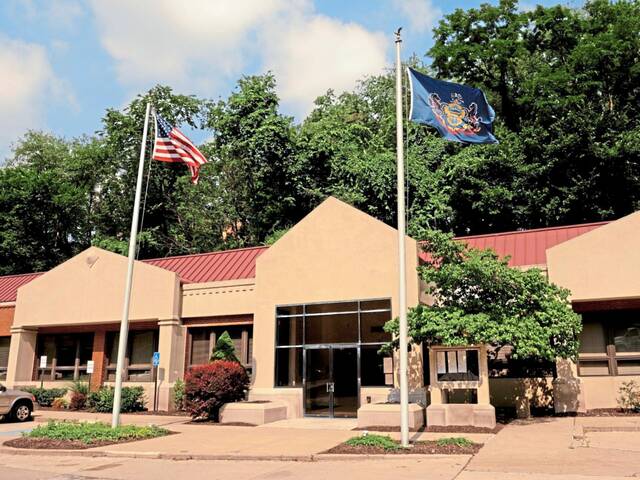The dense trees that grace Bradford Woods are part of the charm that attracts residents to the tiny borough.
But the lush forested areas also are home to a growing deer population with human allies who set out tasty snacks for them.
Borough officials say the deer would be better off fending for themselves.
Council has adopted a new ordinance that makes it illegal for residents to feed deer, which are increasingly responsible for causing traffic crashes, destroying expensive landscapes and spreading Lyme disease through the ticks they carry.
Discussions about how to deal with the problems caused by deer began in 2009 and were brought before council again in 2014. No action was taken then.
A growing number of complaints and steps taken by surrounding communities to curb the deer population prompted council to revisit the issue this year.
“We’ve had a number of complaints from residents about deer doing some serious damage to landscapes,” said Councilman Kevin Rhule. “Deer overpopulation was also identified in our master plan, and we were aware that other communities in the area have been taking steps to deal with the problem, so we felt it was a good time for us to do something.”
The measure was advertised before being passed unanimously by council Dec. 7. No residents opposed its adoption, Rhule said.
The new law takes effect in mid-February to give residents time to comply with the order, which bans residents from placing any “fruit, grain, mineral, salt, salt stick, vegetable or other material outdoors on any public or private property for the purpose of attracting or feeding deer.”
Property owners also could be fined if they fail to remove food that has been put out for deer within 24 hours after being notified.
Residents who violate the law may be fined $25 for the first offense, $75 for the second one, $150 for a third violation and $300 for the fourth and subsequent offenses.
Fines will be issued for each day that a resident is in violation of the ordinance.
Veterinarians, animal control officers or county, state, or federal game officials are exempt from the rules if they are feeding deer as part of their jobs.
State game officials say feeding bans are critical to successful deer management programs and work best when its done across multiple communities, according to state Game Warden Zeb Campbell, who helped Ross Township and other communities develop their deer management programs.
Ross enacted a deer feeding ban in 2018 and conducted its first organized archery hunt in September.
During a community meeting Ross conducted to outline how the hunt would work, Cambell illustrated how quickly the deer population can grow by citing an experiment conducted in Michigan in 1927.
Researchers there released six deer into an enclosure and by 1933, their number had increased to 160.
He said deer can multiply fast and have no natural predators in this area.
Campbell said feeding deer, while well intentioned, also can cause the animals more harm than good.
Consuming food other than what is available naturally can result in serious digestive problems for deer during certain times of the year, according to the game commission.
Deer also can become habituated to eating from artificial food sources and stop searching for food in the wild, further risking their ability to survive.
Chronic Wasting Disease —a contagious condition that is fatal to deer — also is spread through saliva when healthy deer eat from food piles that have been tainted.
Franklin Park has had a ban on feeding deer in place since 2015 and allows hunting on municipally owned preserves to thin the deer herd. Pine supervisors passed a deer management policy in 2014 that outlines a variety of ways to control deer — along with the advantages and disadvantages of each method.
In September, McCandless council gave members of the planning commission the green light to develop measures to address the deer population that could include a feeding ban. They also will consider whether organized hunts will help with the effort to thin the herd.
The commission members noted in their presentation to council that Pennsylvania ranks third in the nation when it comes to collisions between deer and motor vehicles.
Rhule said an organized hunt would probably not occur in Bradford Woods because the only publicly owned property is the Bradford Woods Reserve, which is managed by the Allegheny Land Trust.
While the borough isn’t planning organize hunts, it does not prohibit residents from doing it themselves.
Residents and the people they invite are free to hunt on their own land if it can be done following state Game Commission rules.


